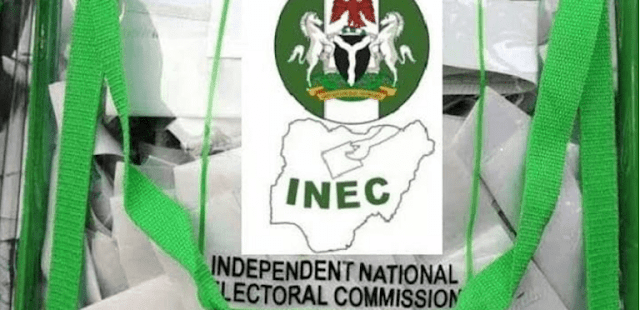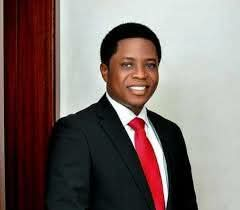In the ever-evolving political theater of Nigeria, where appointments and dismissals often serve as barometers for governmental priorities and internal dynamics, President Bola Ahmed Tinubu has once again demonstrated his penchant for decisive action. On Monday, September 8, 2025, the Presidency announced the immediate disengagement of Fegho John Umunubo from his position as Special Assistant to the President on Digital and Creative Economy, under the Office of the Vice President. This move, communicated through a terse official statement, has ignited a flurry of speculation, commentary, and debate across social media, traditional news outlets, and political circles. Coming just a day before the current date of September 9, 2025, the sacking underscores the fluid nature of Tinubu’s administration, which has been marked by a series of high-profile reshuffles since assuming power in May 2023.
The announcement was made public by Abiodun Oladunjoye, the Director of Information and Public Relations in the Presidency, who ensured that the message was disseminated widely to stakeholders in the digital and creative sectors, both domestically and internationally. The statement, as quoted verbatim, left little room for ambiguity: “Stakeholders and constituents of the digital and creative economy, at home and abroad, as well as the general public are hereby notified that FEGHO JOHN UMUNUBO, who hitherto had served as the Special Assistant to the President on Digital and Creative Economy (Office of the Vice President), has been disengaged with immediate effect.” It further cautioned, “Kindly note that he no longer represents this administration in any capacity. Henceforth, anyone who interfaces with him in the name of President (Bola) Tinubu’s administration does so at his or her own risk. We urge all stakeholders and constituents of the digital and creative economy to be so guided.”
This abrupt termination, devoid of any elaborated rationale in the official release, has left many pondering the underlying factors. While the Presidency has maintained a veil of silence on the specifics, the timing and context suggest deeper currents at play within the corridors of Aso Rock, Nigeria’s seat of executive power. Umunubo’s role, though not one of the cabinet-level heavyweights, was pivotal in a sector that President Tinubu has repeatedly touted as a cornerstone of his economic renewal agenda. The digital and creative economy encompasses everything from Nollywood’s burgeoning film industry to the tech startup ecosystem in Lagos, fintech innovations, and the creative arts that contribute significantly to Nigeria’s GDP. In a nation grappling with youth unemployment rates hovering around 40% and a digital divide exacerbated by infrastructural challenges, Umunubo’s portfolio was seen as a bridge between policy and innovation.
To contextualize this development, it’s essential to trace the trajectory of President Tinubu’s administration since its inception. Elected in a contentious 2023 poll amid allegations of electoral irregularities and economic promises that resonated with a populace weary of the previous Muhammadu Buhari era, Tinubu inherited a federation strained by insecurity, inflation, and debt. His “Renewed Hope” manifesto emphasized diversification away from oil dependency, with digital transformation and creative industries positioned as engines for job creation and export revenue. Early in his tenure, Tinubu initiated a cabinet of ministers that included tech-savvy appointees, and the Vice President’s office—led by Kashim Shettima—has been instrumental in spearheading initiatives like the National Digital Economy Policy and Strategy (NDEPS). Umunubo’s appointment in late 2023 fit neatly into this framework, as he was tasked with advising on policies that could harness Nigeria’s youthful demographic bulge—over 70% of the population under 30—for digital entrepreneurship.
Fegho John Umunubo, though not a household name prior to his appointment, brought a background that aligned with the role’s demands. Hailing from the Niger Delta region, Umunubo had established himself as a figure in the creative and digital spaces through his involvement in media production, event management, and advocacy for youth empowerment in the arts. Before joining the administration, he was associated with several non-governmental initiatives promoting digital literacy and creative startups, particularly in Port Harcourt and Lagos. His selection was viewed as a nod to regional balance in appointments, a sensitive issue in Nigeria’s multi-ethnic polity. Umunubo’s tenure, spanning nearly two years, saw him engaging with international bodies like the World Bank and UNESCO on projects aimed at bolstering Nigeria’s creative exports. For instance, he was instrumental in the push for the African Continental Free Trade Area (AfCFTA) to include digital content protocols, which could open markets for Nigerian musicians, filmmakers, and app developers across the continent.
However, the sacking has exposed fault lines that extend beyond individual performance. Public reactions, as captured in the comment sections of news portals like Alexa News Nigeria, reveal a cocktail of cynicism, tribal undertones, and demands for transparency. One commenter quipped, “About to appoint a Yoruba man in his place. Wanna bet?”—a pointed reference to perceived ethnic favoritism in Tinubu’s inner circle, given that the President hails from the Yoruba-dominated Southwest. Another drew parallels to a rumored scandal: “You dey go fight smart money Arese, now see yourself,” alluding to potential involvement in a controversy with Arese Ugwu, a prominent Nigerian venture capitalist and media personality known for her work in fintech and women’s empowerment. This speculation ties into broader narratives of intra-administration clashes over resource allocation in the digital space, where private sector influencers like Ugwu wield significant sway.
Further comments amplified concerns about corruption and selective justice: “But wait oooo….una quick dey sack fegho because of the scandal with Arese, but Wike wey corruptly and arrogantly bought 3 houses in the USA, dey collect people land for Abuja…una never still sack am….Mr the corruption in my country has gone down.” Here, Nyesom Wike, the Minister of the Federal Capital Territory and a key Tinubu ally, is invoked as an example of uneven accountability. Such sentiments echo a wider public frustration with the administration’s anti-corruption drive, which has netted some low-hanging fruits but spared political heavyweights. The phrase “Eh ya… tunubu is cleaning house. Only yaribas permitted in the inner circle as 2027 nears” captures the pre-election jockeying, with 2027 looming as a horizon for consolidation of power bases.
Delving deeper into the digital and creative economy’s significance in Nigeria, this sacking occurs at a juncture when the sector is poised for exponential growth. According to the National Bureau of Statistics, the creative industries contributed over N6 trillion (approximately $4 billion) to GDP in 2024, with projections for 2025 estimating a 15% uptick driven by streaming platforms like Netflix’s investments in local content and the rise of African tech unicorns such as Flutterwave and Paystack. Umunubo’s office was at the forefront of initiatives like the Digital Nigeria Programme, which aims to train one million youths in coding and digital skills by 2027. The absence of a named replacement in the announcement raises questions about continuity; will the Vice President’s office absorb the duties temporarily, or is a reshuffle in the offing that could realign priorities toward more politically aligned figures?
President Tinubu’s history of personnel changes provides a lens through which to view this event. Since 2023, he has sacked or reshuffled over a dozen aides and ministers, often citing the need for efficiency and alignment with his vision. Notable examples include the dismissal of the Central Bank Governor in June 2023 amid currency redesign controversies and more recent purges in the humanitarian ministry following embezzlement scandals. These moves are typically framed as part of a broader “renewal” but have drawn criticism for opacity and potential vendettas. In Umunubo’s case, the lack of stated reasons fuels theories ranging from performance lapses—perhaps inadequate progress on key deliverables like the creative economy bill—to personal or political missteps. Insiders whisper of tensions between the Vice President’s office and the more technocratic elements in the digital ministry led by Bosun Tijani, where overlapping mandates might have led to friction.
The implications for Nigeria’s digital ecosystem are multifaceted. On one hand, the sacking could signal a tightening of oversight, ensuring that appointees are not only competent but also ideologically synced with the administration’s pro-market, pro-investment stance. Tinubu’s government has courted foreign direct investment (FDI) aggressively, with digital economy pledges attracting commitments from Google and Microsoft to expand data centers in Lagos. Umunubo’s exit might disrupt ongoing negotiations, particularly if international partners perceive instability. On the other hand, it highlights the vulnerability of niche roles in a resource-constrained bureaucracy. The creative sector, which employs millions informally—from Afrobeats artists like Burna Boy to Nollywood producers—relies on stable policy support to navigate challenges like piracy, bandwidth costs, and funding gaps.
Public discourse has also veered into the realm of ethnic politics, a perennial fault line in Nigerian governance. With Umunubo’s Niger Delta origins contrasting against the Yoruba dominance in key posts, the sacking revives accusations of marginalization. The Southwest, Tinubu’s base, holds sway in the All Progressives Congress (APC), and as 2027 approaches, consolidating ethnic loyalties becomes paramount. Commenters’ bets on a Yoruba replacement aren’t baseless; recent appointments, such as Hadiza Bala-Usman as Head of the Civil Service, have followed similar patterns. This tribal lens complicates the narrative, potentially alienating Southern minorities and fueling opposition narratives from parties like the Peoples Democratic Party (PDP).
Economically, the digital and creative economy represents a beacon of hope amid macroeconomic headwinds. Nigeria’s inflation rate, at 34% in mid-2025, and naira depreciation have squeezed creative entrepreneurs, who often operate on thin margins. Umunubo’s initiatives, including partnerships with the African Development Bank for creative hubs, were geared toward mitigating these pressures. His disengagement could stall momentum, especially if no successor is swiftly appointed. Stakeholders, from the Association of Nollywood Producers to tech associations like the Nigeria Internet Registration Association (NiRA), have called for clarity, emphasizing the need for uninterrupted support to meet Sustainable Development Goals on digital inclusion.
In the broader African context, Nigeria’s digital ambitions position it as a continental leader, but internal disruptions like this could cede ground to rivals like Kenya’s Silicon Savannah or South Africa’s robust creative exports. The AfCFTA, ratified in 2021, offers a $3.4 trillion market, yet implementation hinges on harmonized digital policies—areas where Umunubo’s office played a coordinating role. The sacking might prompt a reevaluation of these commitments, potentially prioritizing short-term political gains over long-term economic strategy.
As September 9, 2025, dawns, the Presidency’s silence on a replacement keeps the story alive. Will Tinubu appoint a heavyweight like a tech mogul from the private sector, or opt for a loyalist to maintain control? The blogosphere and Twitter (now X) continue to buzz, with hashtags like #TinubuSacksUmunubo trending. For Umunubo, the path forward is uncertain; stripped of official capacity, he might pivot to private consulting or advocacy, leveraging his networks in the creative space.
This episode, while seemingly routine in Nigerian politics, encapsulates the administration’s challenges: balancing renewal with stability, merit with loyalty, and ambition with accountability. As Nigeria navigates toward 2027, such decisions will shape not just the digital economy but the nation’s democratic fabric. The coming days may reveal more, but for now, the sacking stands as a stark reminder of power’s impermanence in Aso Rock.
The Genesis of Umunubo’s Appointment and the Digital Economy Vision
To fully appreciate the sacking’s weight, one must revisit Fegho John Umunubo’s entry into the administration. Appointed in November 2023 as part of a broader slate of special assistants, Umunubo was selected for his grassroots experience in digital advocacy. Born in the early 1980s in Rivers State, he had built a career blending media and tech, founding initiatives like youth digital workshops during the Buhari era. His role under Vice President Shettima was to operationalize Tinubu’s pledges, such as allocating 30% of the federal budget to digital infrastructure by 2025—a target still elusive amid fiscal constraints.
The digital and creative economy’s blueprint under Tinubu draws from global models like Estonia’s e-governance and South Korea’s K-wave. In Nigeria, it targets leveraging the 150 million internet users (as of 2025) to drive a $88 billion sector by 2030, per government estimates. Umunubo’s office collaborated on the Nigeria Startup Act of 2022, providing tax incentives for ventures, and pushed for blockchain adoption in creative royalties to combat piracy, which costs the industry $1 billion annually.
Yet, challenges abounded. Power outages, regulatory hurdles from the Nigerian Communications Commission (NCC), and funding shortages hampered progress. Umunubo’s visibility—through conferences like the Lagos Startup Week—earned praise, but critics argued for more tangible outcomes, like the stalled National Creative Industry Fund.
Speculations and the Shadow of Scandals
The absence of reasons in the statement has birthed a cottage industry of speculation. The “Arese scandal” referenced in comments likely alludes to a July 2025 online spat involving Arese Ugwu, whose venture capital firm had clashed with government policies on fintech licensing. Did Umunubo’s defense of regulatory stances irk private interests, leading to his ouster? Or was it internal rivalry, with the Communications Ministry seeking to consolidate power?
Corruption allegations, though unsubstantiated, fit a pattern. Nigeria ranks 145th on Transparency International’s 2024 Corruption Perceptions Index, and the administration’s selective sackings—targeting non-core allies—raise eyebrows. Comparisons to Wike’s retention, despite land grab accusations, highlight perceived biases.
Tribalism and Political Calculus Ahead of 2027
Nigeria’s ethnic mosaic—Hausa-Fulani North, Yoruba Southwest, Igbo Southeast, and minorities like the Niger Delta—colors every appointment. Umunubo’s sacking, following others from non-Yoruba regions, fuels “Yorubanization” narratives. Tinubu’s APC relies on Southwest votes, but alienating the South-South could erode support. As 2027 nears, expect a replacement announcement timed for maximum political mileage, perhaps unveiling a unity ticket.
Economic Ramifications and Stakeholder Reactions
For the creative sector, uncertainty looms. Nollywood, Africa’s Hollywood with 2,500 annual films, depends on policy stability for global deals. Tech hubs like CcHUB worry about disrupted funding pipelines. International partners, including the EU’s digital4development initiative, may pause engagements.
Stakeholder groups have reacted measuredly. The Creative Industry Group issued a statement on September 9, 2025, urging a quick replacement to safeguard gains. Opposition figures like Atiku Abubakar tweeted critiques, framing it as “administrative chaos.”
Looking Ahead: Reforms and Resilience
Tinubu’s next steps could redefine the portfolio—perhaps merging it with the Innovation Ministry for efficiency. For Umunubo, opportunities abound in the private sector, where his expertise could thrive unencumbered.
This sacking, in the grand tapestry of Nigerian politics, is a thread pulling at larger patterns of governance. As the nation hurtles toward economic diversification, the digital and creative economy’s stewards must navigate politics’ tempests. Only time will tell if this disruption catalyzes innovation or stalls progress.







